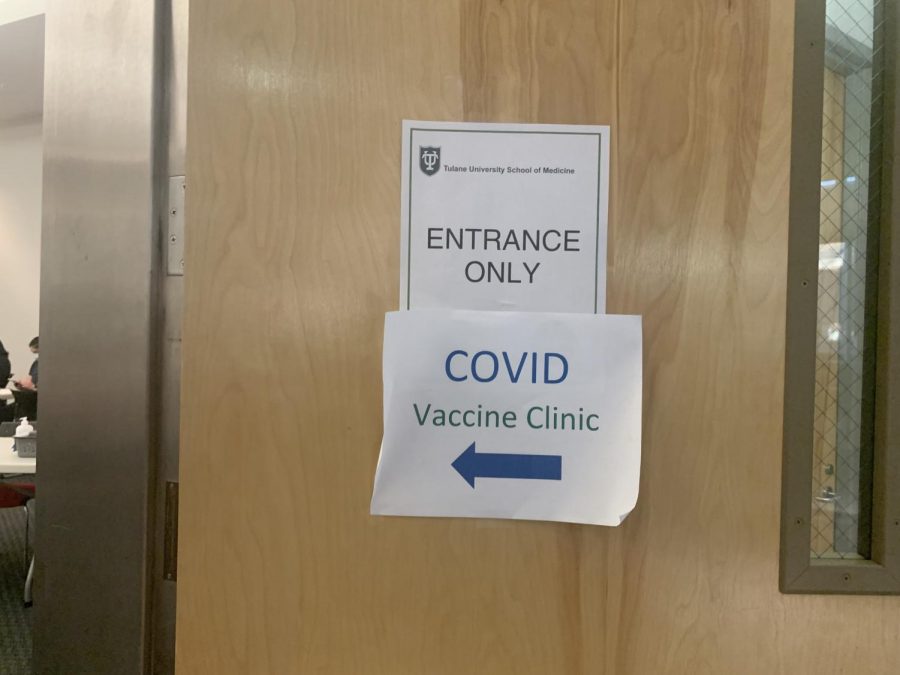Johnson & Johnson vaccine distribution halted
The Johnson & Johnson COVID-19 vaccine administration has recently been halted by the Food and Drug Administration and the Centers for Disease Control and Prevention due to six cases of a blood-clotting disorder appearing in recipients.
Dr. David Mushatt, associate professor of medicine and section chief of Tulane’s adult infectious diseases section, said that this development is “disappointing, [but] it shows that our US and global vaccine monitoring systems are working well.”
These six cases have appeared after over 7 million people in the U.S. have received the Johnson & Johnson vaccine.
“It is not surprising that rare side effects may occur, so the right decision was to pause administration of the vaccine to obtain more information regarding potential causality (the adverse reaction may or may not be linked to the vaccine) and to decide next steps, such as potential additional labeling before resuming administration,” Dr. Patrice Delafontaine, the executive dean of Tulane School of Medicine, said.
Mushatt says that the medical field is working hard to look into this vaccine anomaly.
“First, putting this in context, the blood clotting appears to be extremely rare, on the order of 1 in a million doses of vaccine, which is about the same as a life-threatening allergic reaction from a flu shot. I would emphasize that the FDA and CDC are looking at this problem very closely and will issue further guidance soon,” Mushatt said.
Both Delafontaine and Mushatt expressed that the Moderna and Pfizer-BioNTech vaccines are safe and effective, as well as plentiful enough to vaccinate those after the halt of Johnson & Johnson vaccinations.
The Tulane University School of Medicine hosted a trial of the Johnson & Johnson vaccine in November of last year and aimed to recruit up to 1,920 participants throughout the New Orleans area.
Delefontaine says that the halt in the Johnson & Johnson vaccine distribution will not affect those who are a part of the trial.
“They do have the option to receive another vaccine, however, during this hold on using the [Johnson & Johnson] vaccine,” Delefontaine said.
As for everyone else who has gotten the vaccine through Tulane, the halt will also not affect them either.
“Our vaccine center has almost exclusively used [the] Pfizer vaccine, so the hold on [the Johnson & Johnson] vaccine has not really affected our vaccination program,” Delafontaine said.
Mushatt expressed that he felt that the rapid pace of vaccine development has caused many to be anxious regarding vaccinations in general, which has now been exacerbated by the recent events. He stressed that those people should not worry.
“The reality is that COVID-19 vaccines have been developed in record time, not due to rushing hastily but thanks to newer technologies, more efficient clinical trial designs, and the large number of infected persons who are exposed to the virus,” Mushatt said.
“The J&J vaccine is down but not out, as it may eventually be determined that its advantages, especially the single-dose, far outweigh the rare risk of serious side effects.”
Your donation will support the student journalists of Tulane University. Your contribution will allow us to purchase equipment and cover our annual website hosting costs.



